| 1 |
Supporting Students with Mental Health Issues’
Date: 13th April 2018
The seminar aimed to promote the awareness of mental health issues among students and educate them on the support systems available. The seminar provided a platform for both staff and students to share their opinions and perspectives regarding mental health issues. It also aimed to provide the participants with a better understanding of ways to maintain mental health issues, besides discussing the strategies and support mechanism for the issue from national and international perspectives.
Initiating the seminar, the chairperson of CRNCD, Prof Dr John Paul Evangel Judson highlighted the significance of addressing mental health issues among students. Dr Pamela Hagan, Director of Student Wellbeing School of Medicine University of Nottingham, United Kingdom started the first session by raising concern on the situation that students face when it comes to handling their mental health issues. Focusing on medical students, Dr Hagan cited a news report of medical students having a higher rate of depression and suicide compared to the rest. Dr Hagan also found out that medical students are the least to seek counselling service compared to students from other fields based on a survey conducted at her university.
The seminar proceeded with another session from Faculty of Medicine and Health Sciences (FMHS) Prof Dr M Parameshvara Deva who covered the issue in a broader context. He said, “Many countries today with huge population, around 20 to 30 million people have no psychiatrist. Mental issues have always been treated badly. Until today it still is because of the stigma.” He also emphasised on the Asian situation that generically does not put mental health issues as a top priority. After a short break, President of Medicine and Health Science Society, Kong Eu Jinn, took charge of the podium to provide an insight into the medical students’ perspective relating to their mental health. He shared the heavy expectations from people around, the methods of choice in relieving stress and the burden in their study.
Before the seminar wrapped up, Department of Student Affairs Counsellor, Ms Tan Chin Yee, shared the available services offered by the guidance and counselling unit. The services include individual and group counselling, talks and workshops, and personality and psychological assessment. Some of the popular cases received by the guidance and counselling unit are procrastination, nervousness, increased absence in class and suicidal thoughts. Students who need assistance or curious to know themselves better can walk-in or make appointments through a phone call or email.
The seminar ended with an in-depth discussion session regarding the steps that can be taken to improve the current situation.
Programme:
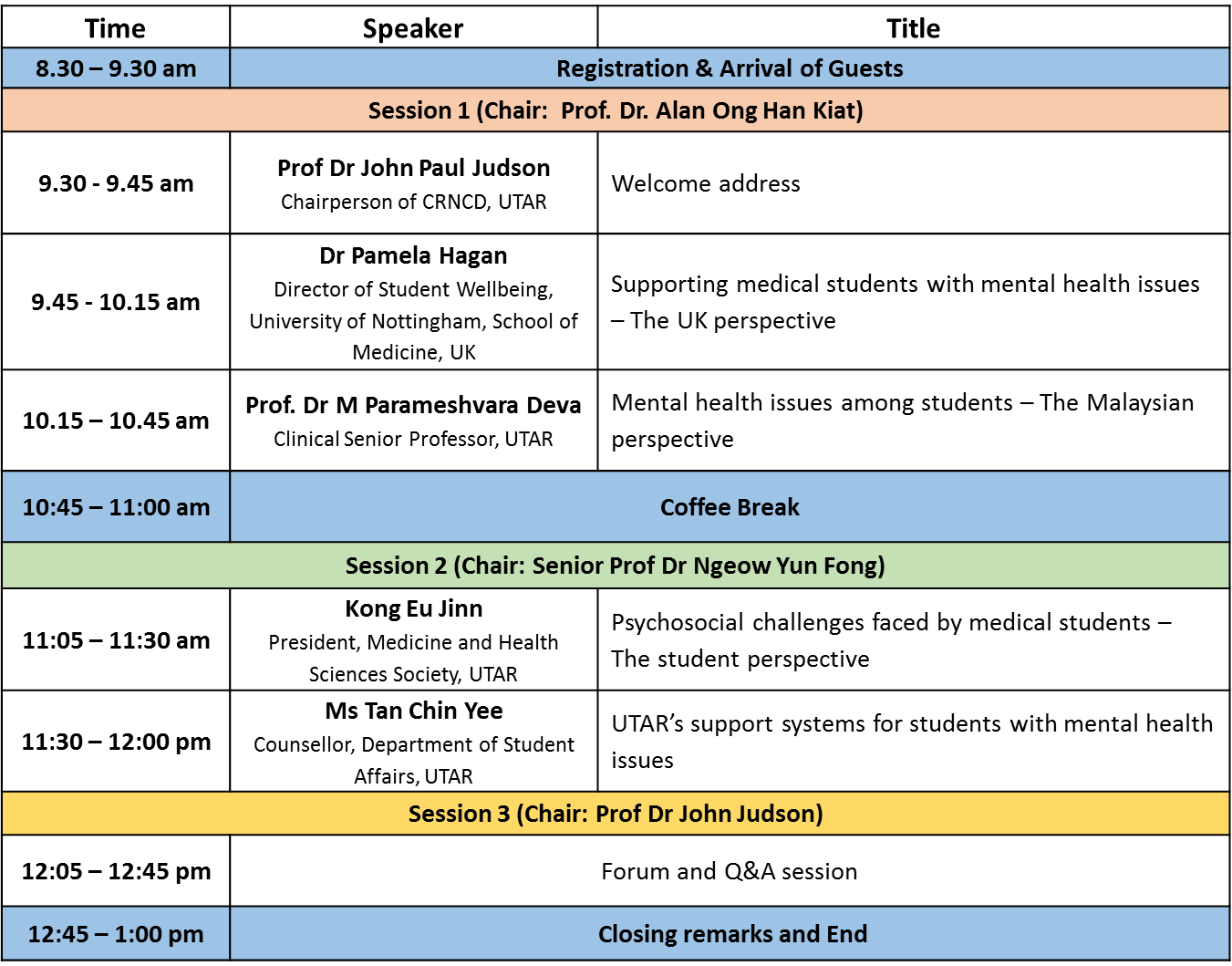
Total number of registered participants: 40
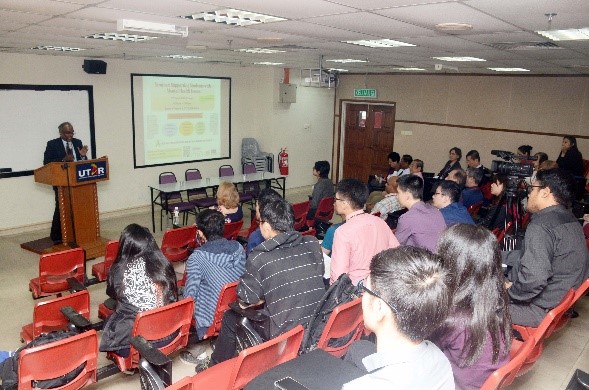
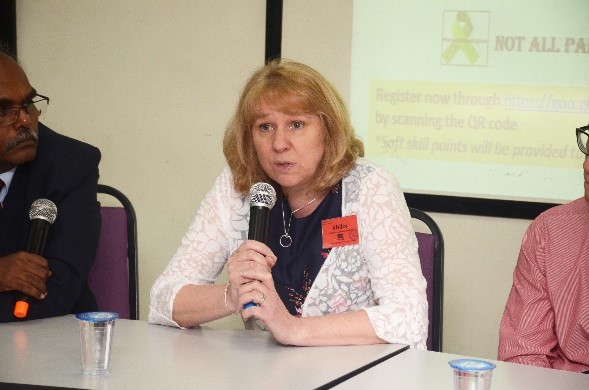
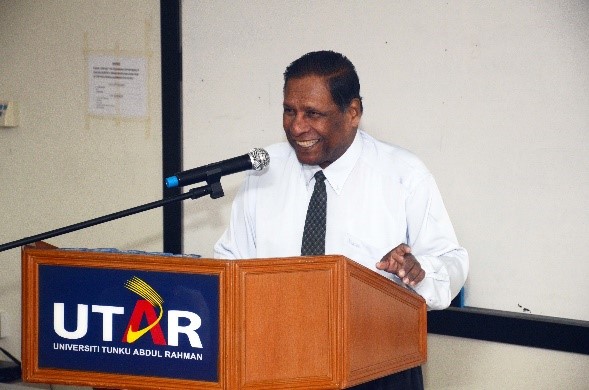
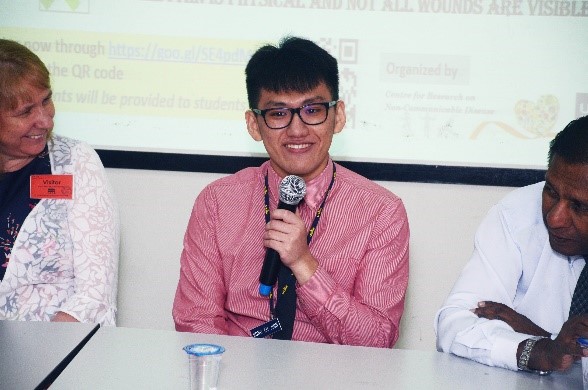


|
| 2 |
Seminar on “World Sleep Day”
Date: 19th April 2018
The seminar aimed to create awareness on the importance of sleep and recognise obvious and subtle signs of internal disorders that often manifest as sleep dysfunction. As the prevalence of insomnia and other kinds of sleep disorders is gradually increasing, it has become imperative and mandatory to put light on the connotation and attributes of sleep. The seminar outlined various external factors that could upset sleep rhythms and what should be done to improve the quality of sleep. The seminar also covered various clinical aspects of sleep disorders and possible remedies.
Inaugurating the seminar, CRNCD Chairman, Prof Dr John Paul Evangel Judson, emphasised the seriousness and the alarming rise of sleep disorders among the public and in particular, students. He mentioned that on an average 74% of people experience problems that affect the quality of their sleep which has an impact both in the short and long terms.
The invited speaker was PPPUiTM (Clinical Services) Deputy Dean Dr Ahmad Izuanuddin Ismail who captivated the audience with an interesting and interactive presentation titled “Rhythm of your life”. He spoke in detail about the internal biological clock and sleep rhythms that one needs to regulate for a healthy life.
FMHS Clinical Assoc Prof Dr Thaw Zin, gave an insightful talk about the pharmacological and spiritual aspects of sleep, through personal experiences. Following that, FMHS lecturer Dr Nadia binti Mohamad Hatta, presented an engaging and enlightening lecture about various behavioural and psychological dimensions of sleep dysfunction. An interesting Q&A session followed, where participants posed queries to the speakers on various topics such as insomnia, sleep positions, medications, the method of assessments and current research.
The seminar concluded with a vote of thanks by the emcee, Dr Divyangana Vartak.
Programme:
| Time | Session I Programme | Chair (TBA) |
|---|
| 8:30 - 9:00 am | Registration | |
| 9:00 - 9:10 am | Inauguration and Opening Remarks | Prof. Dr Yap Sook Fan,
Deputy Dean (R&D and Postgraduate Programmes)
FMHS, UTAR |
| 9:10 - 9:20 am | Welcome and Seminar Goals |
Prof. Dr. John Paul Judson, Chairman,(CRNCD)
FMHS, UTAR |
| 9:20 - 10:05 am | Preserve Your Rhythms to Enjoy Life | Dr. Ahmad Izuanuddin Ismail Consultant Respiratory Physician Deputy Dean, UiTM |
| 10:05 - 10:35 am | Sleep Sound, Sound Mind | Dr. Nadia Mohammad Hatta
Lecturer
FMHS, UTAR |
| 10:40 -10.55 am | Refreshment Break | |
| | Session II | Chair (TBA) |
| 10:55- 11.25 am | Impact of Drug Use and Abuse in Sleep Disorders | Dr. Thaw Zin
Associate Professor
FMHS, UTAR |
| 11.30- 12.00 pm | Role of Physiotherapy in the Field of Sleep Medicine | Mr. Tarun Amalnerkar
Lecturer
FMHS, UTAR |
| 12.05 - 12.15 pm | Souvenir presentation | Prof. Dr. John Paul Judson |
| 12. 15 - 12.25 pm | Closing Remarks | Dr Divya or MC |
| | END | |
Total number of registered participants: 47
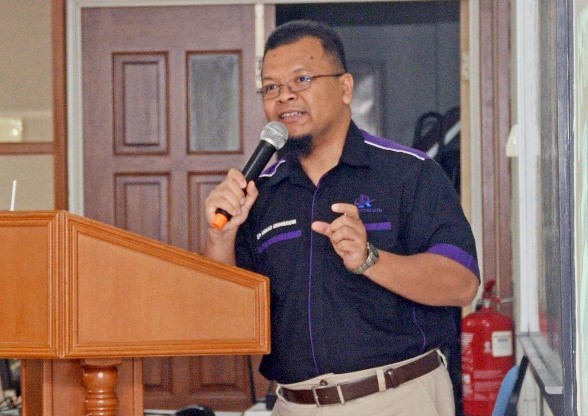

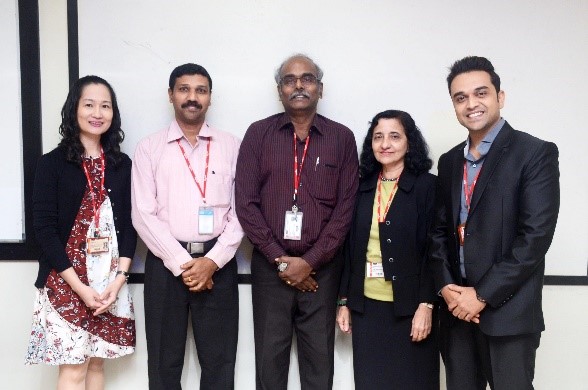
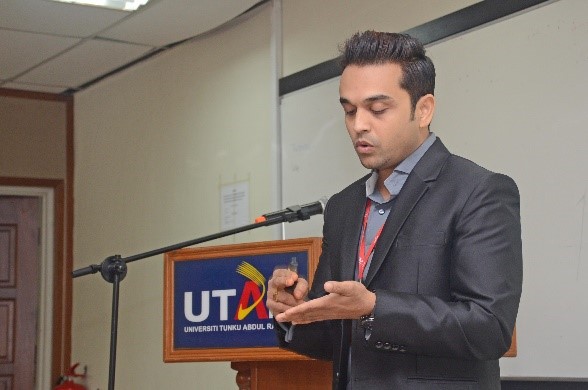
|
| 3 |
Talk on Understanding Diabetes
Date: 20th August 2018
The seminar served as a platform to provide a deeper understanding of Malaysia’s leading disease known as diabetes through several talks and a discussion forum. Present at the seminar were Faculty of Medicine and Health Sciences (FMHS) Dean Emeritus Prof Dr Cheong Soon Keng, lecturers, students, staff and the public. He first welcomed the speakers and participants at the seminar.
The seminar was then followed by two sessions of talks and an open forum session. Session One, chaired by Prof Dr Ngeow Yun Fong, featured two speakers, namely University of Leeds Department of Discovery and Translational Sciences Dr Hema Viswambharan and UTAR Head of Physiotherapy Department Nizar Abdul Majeed Kutty. The second session was chaired by Prof Dr Lim Yang Mooi and it featured two speakers, namely Hospital Kuala Lumpur Department of Physiotherapy Senior Physiotherapist Zalila Kasim and UTAR Centre for Research in TCM Chairperson and FMHS Head of Chinese Medicine Department Dr Te Kian Keong.
Dr Hema presented her talk titled, “Endothelial Insulin Resistance: An emerging concept in diabetic vascular diseases”. She spoke about the new concept of diabetes, the role of endothelial cells, her research work and collaboration, diabetes and its effects on the body as well as the function of insulin. Next, Mr Nizar’s talk titled “Talk on Diabetic Neuropathy” focused on the global trends of diabetes, the global prevalence of diabetic neuropathy, neuropathy syndromes and pathological changes. He said, “Diabetes affects humans from head to toe and it reduces the quality of life, leading to economic burden as a whole. Thus, prevention and awareness need to start at a young age.”
Puan Zalila Kasim in her talk titled, “Role of Physiotherapy in the Management of Diabetes” emphasized a need to look into ways to encourage diabetic patients to engage physiotherapy and the benefits of exercising in diabetic patients, in which frequency, time and type of exercise as well as the preparations before exercise should be taken into consideration. She also spoke about the role of a physiotherapist, the need for regular physical activity, how to measure the outcome of physical exercise as well as the behaviour change therapy which can promote the adaption and maintenance of lifetime physical activity.
Dr Te shared his topic titled “Understanding Diabetes from TCM view” and explained the overview of TCM which included the background and the methods used in TCM. He also made historical references of the symptoms of diabetes being recognised as a disease more than 2000 years ago in ancient Chinese texts as “Xiao-Ke”.
The seminar then featured a lively and interactive Open forum chaired by Professor Dr John Paul Judson (Chairperson for the Centre for Research on Non-Communicable Diseases), where all the invited guests took questions from the audience in their respective areas of expertise and clarified their doubts regarding diabetes and its management.
Throughout the entire seminar, free blood sugar tests were conducted to registered participants and members of the public by trained staff and student volunteers through kind courtesy of Nano Medic Care Sdn Bhd.
Programme:

Total number of registered participants: 57
Main Sponsors:
1. Nano Medic Care Sdn Bhd
Helpers:
1. Year 4 MBBS student volunteers

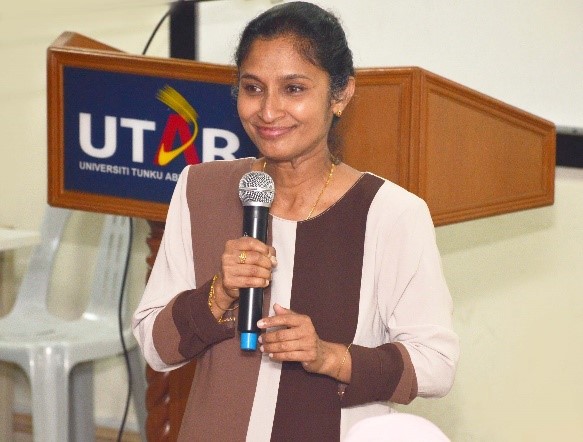

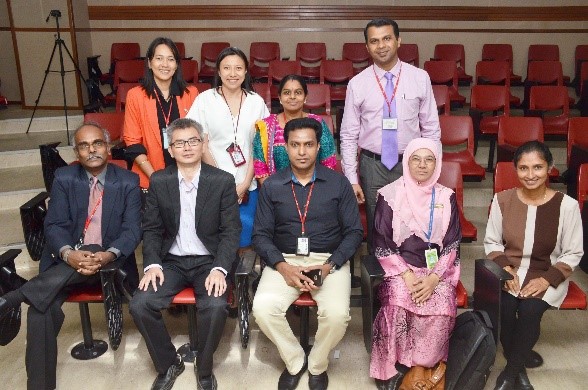

|
| 4 |
FMHS Clinical Research Workshop
Date: 26th September 2018
The workshop aimed to initiate research ideas/proposals among clinical staffs of FMHS in order to increase the number of principal investigators in FMHS. The workshop also successfully gathered both pre-clinical and clinical staffs leading to several collaborative projects/proposals.
The keynote lecture titled “Clinical Research” was delivered by Adjunct Professor Dr Goh Bak Leong, Head and Consultant Nephrologist of Clinical Research Centre in Hospital Serdang. He spoke about ways to conduct clinical research works in hospital settings and also ways to publish clinical data. The first lecture was then delivered by Dr Damenthi Dair from Hospital Ampang, which entitled “Perspectives of a Principal Investigator in Clinical Bioequivalence trials”. She shared with the audience about clinical trials performed in her clinical research centre, which focuses on bioequivalence/bioavailability studies of pharmaceutical drugs. Some of the challenges faced during the trials were also disclosed.
Then, the first breakout session focusing on proposal writing was conducted, whereby the participants were separated into five groups, each of which was given a main theme for the proposal drafting (diabetes/hypetension, hematology, public health, probiotics and quality of life). Following discussion among the group members, participants completed their proposal application forms under the supervision of facilitators and experts who guided them along the way. Each group then presented their proposals, which were critically analysed by the facilitators and constructive comments were provided.
After lunch break, the second lecture was delivered by Professor Dr. Retneswari a/p S. Masilamani, entitled “How to construct and validate a scientific questionnaire?” She spoke about ways to construct questionnaires for different study designs and the importance of questionnaire validation. The workshop then proceeded with a second breakout session, which focused on questionnaire development. The participants then presented the questionnaires designed and these were critically analysed and discussed with the facilitators.
Programme:

Total number of registered participants: 47

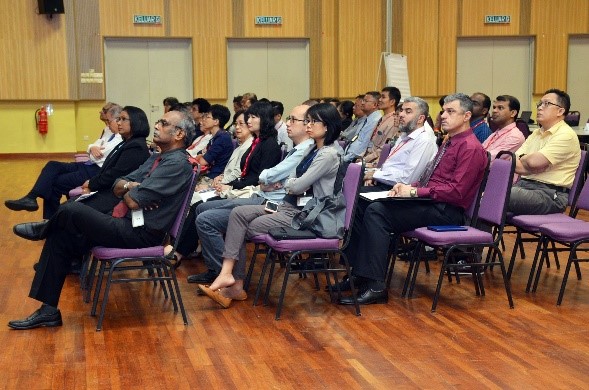
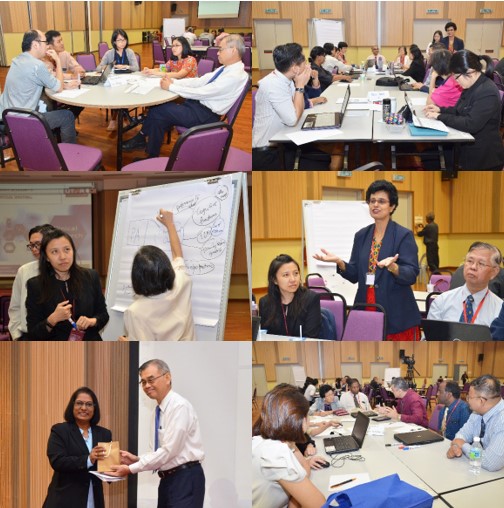
|
| 5 |
Seminar and Workshop on Urinary Incontinence: Is it common and normal?
Date: 28th September 2018
The seminar aimed to promote the awareness of urinary incontinence (UI) by sharing the latest updates of its current management with academicians, health care providers, students and the public.
The seminar saw three sessions, encompassing multiple invited talks, and two workshops. The first session was chaired by FMHS lecturer Dr Saravanan Jagadeesan. It saw Dr Pavan Kumar from Management and Science University delivering his lecture on “Chemicals causing Incontinence”. Dr Pavan explained how regular chemicals could compromise continence. The second session was chaired by FMHS lecturer Dr Fong Lai Yen. It featured two speakers, namely Assoc Prof Dr Chew Heng Hai and Assoc Prof Dr Yu Chye Wah from AIMST University. They delivered their lectures titled “How does urinary incontinence relates to the defecation process?” and “Gold Standard Treatment for Urinary Incontinence” respectively. Dr Chew in his talk provided a holistic understanding of the human’s pelvic floor. He then recommended manual or mechanical bowel aided defecation as part of postnatal care.
Dr Yu began his talk by explaining the definition of Gold Standard treatment. According to Dr Yu, an average woman spends about $900 each year to deal with the effects of bladder leakage. He also explained the treatment options available for UI patients, namely conservative treatment, medication and reconstructive surgery.
The third session was chaired by Prof Dr John Paul Evangel Judson and it saw FMHS lecturer Gan Quan Fu presenting his lecture on “Physiotherapy Perspective in managing urinary incontinence”. According to Gan, there are four types of UI; stress incontinence occurs due to the poor closure of the bladder; functional incontinence occurs due to health problems or medications that make it difficult for the patients to reach the toilet; urge incontinence due to overactive bladder; and overflow incontinence due to poor bladder contraction or blockage of the urethra.
Two workshops were also organised for the participants to gain more insights into UI. The first workshop was titled “Nursing people with urinary incontinence”. It saw FMHS lecturer Choo Peak Yean from the Department of Nursing sharing about the proper way to nurse and handle patients with UI. The second workshop was titled “Managing people with urinary incontinence”. The workshop was facilitated by FMHS lecturer Swapneela Jacob. She shared a few exercise routines that would strengthen the pelvic floor muscles in order to avoid and reduce the effects of UI.
Programme:

Total number of registered participants: 35
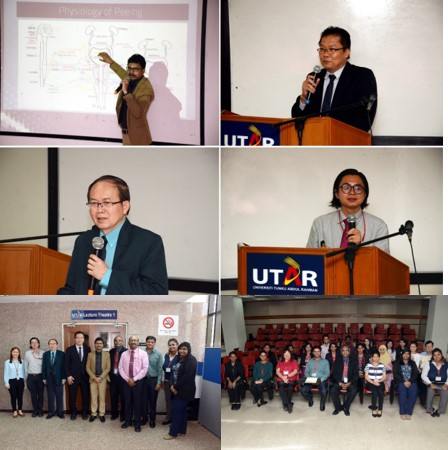
|
























